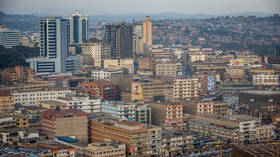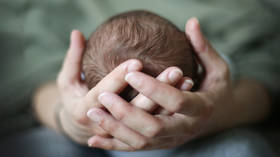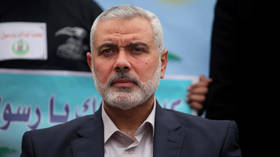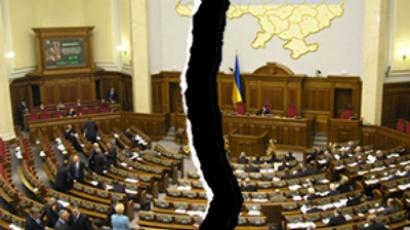UN court ruling doesn’t change Moscow’s stance on Kosovo
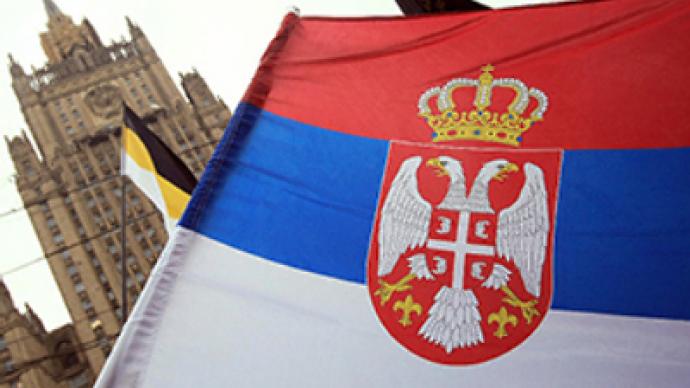
The Russian Foreign Ministry has said that the International Court of Justice’s ruling will not change Moscow’s stance on Kosovo independence: Russia does not recognize it.
On Thursday, the UN’s highest court ruled that Kosovo's declaration of independence from Serbia was legitimate.
“It is crucially important that the court has only assessed Kosovo’s Declaration of Independence, underlining that it has not considered more widely Kosovo’s right to unilateral secession from Serbia,” the Ministry’s statement reads as published on its official website. “Also, in its conclusions the Court has not assessed either the consequences of the adoption of this document, namely whether Kosovo is a state, or the legitimacy of its recognition by a number of countries.”
According to Leonid Slutsky, the first deputy chairman of the State Duma's International Affairs Committee, the court’s ruling “could be likened to Pandora's box”.
“I can foresee a lot of dangerous trends emerging globally, similar to what was going on in Kosovo at one time,” he told Interfax news agency.
The politician believes it is “awful” that the majority of the world's advanced nations backed the position of unilateral recognition of Kosovo's self-proclaimed independence. The decision is “extremely strange” and also is an example of how double standards are being applied in the politics of many countries.
“Kosovo's self-proclaimed independence is recognized as normal, while the independence proclaimed by Abkhazia and South Ossetia is not recognized by an overwhelming majority of the international community,” he said. The ICJ’s decision is “a clearly collective and very serious twist in international politics, in institutions of law and in the world's leading nations,” Slutsky concluded.
The Hague Court’s decision will not have any judicial consequences, said Aleksandr Torshin, first vice speaker of Russia’s upper house, the Federation Council.
“The UN Court has no moral right to address this sort of issues. The decision made on Kosovo creates a dangerous precedent,” he told Interfax agency on Friday. “It was with the connivance of the UN Court that former Yugoslavia and Serbia were bombarded; it was with its connivance that Kosovo militants were eliminating civilians, ruining Serbian temples,” he said. He added that he knows the situation in Kosovo very well and witnessed what was happening during the conflict with his own eyes.
In addition, the official believes, The Hague’s decision is unlikely to lead to prosperity in Kosovo and even less likely to ease tenses in the region.
This precedent, according to Torshin, raises a question: why can Kosovo get independence while South Ossetia and Abkhazia cannot?
Kosovo, Abkhazia and South Ossetia: what’s the difference?
The media and analysts have been reading tea leaves trying to predict the possible consequences of the UN Court’s opinion on Kosovo and suggesting scenarios it would lead to on the international arena.
The politicians remain split over the issue. The opponents of Kosovo independence insist on the principle of territorial integrity as set by international law. They cite UN Security Council Resolution 1244 signed in 1999 which set the principles of the solution to the Kosovo crisis. Having set up an interim UN administration in the region, it also stressed the sovereignty and territorial integrity of the Federal Republic of Yugoslavia. Therefore, Kosovo had no right to unilaterally declare independence, thus violating international law.
The states that back Pristina, however, claim that the Kosovo case is in some ways unique.
According to US Secretary of State Hillary Clinton, Kosovo strived for independence and many there believed the region was made part of Yugoslavia against its will. In addition, tensions in the country resulted in “ethnic cleansing” committed by Serbs against the Kosovo population, she said in an interview with Russian Channel One in March this year.
The top US diplomat, however, stressed that no parallels can be drawn between the Kosovo case and independence of South Ossetia and Abkhazia since “the situations are very different.” Georgia, she said, used to be a united country where different ethnic groups lived and those groups should have remained together, she was quoted as saying.
Still, Deputy Interior Minister of South Ossetia Kazbulat Tskhovrebov said he hopes that the precedent set by the court decision could someday be of benefit to South Ossetia.
“I would like to hope that the declaration of independence by South Ossetia and Abkhazia will also be considered within UN walls,” Tskhovrebov said. “So that we have a chance to prove from a high podium that the independence of South Ossetia is not against international law either.”
In August 2008 – following Georgia’s attack on the South Ossetian capital of Tskhinval – Russia had to use its troops to protect the republic’s population, many of whom are Russian citizens. Shortly after the war, Moscow recognized the independence of South Ossetia and Abkhazia. Washington, however, keeps referring to Russia’s actions as an “occupation of Georgia”.
“We continue to object to and criticize actions by Russia which we believe are wrong and on the top of the list is the invasion and occupation of Georgia,” Clinton said at a meeting with Georgian President Mikhail Saakashvili.
In April this year, speaking at the Parliamentary Assembly of the Council of Europe (PACE), Russia’s Foreign Minister Sergey Lavrov reminded that in 2008, during meetings before the August war between Dmitry Medvedev, Vladimir Putin and Georgian President Mikhail Saakashvili, the Russian side offered its assistance in a conflict resolution on a basis of the territorial integrity of Georgia, but insisted that a document on the non-use of force was to be signed.
As the Russian foreign minister said, “you know what was next.” Late in the evening on August 7, 2008, Georgian forces began massive artillery bombardment of the South Ossetian capital of Tskhinval.
“When we responded to the attacks on our peacekeepers and civilians of Tskhinval and other villages, we had no geopolitical intentions. We were saving people,” Lavrov stressed.
After the conflict in South Ossetia, the Georgian president refused to discuss the status of the republics, Lavrov said it means that “the war in [Saakashvili’s] head is not finished yet.”
Natalia Makarova, RT


